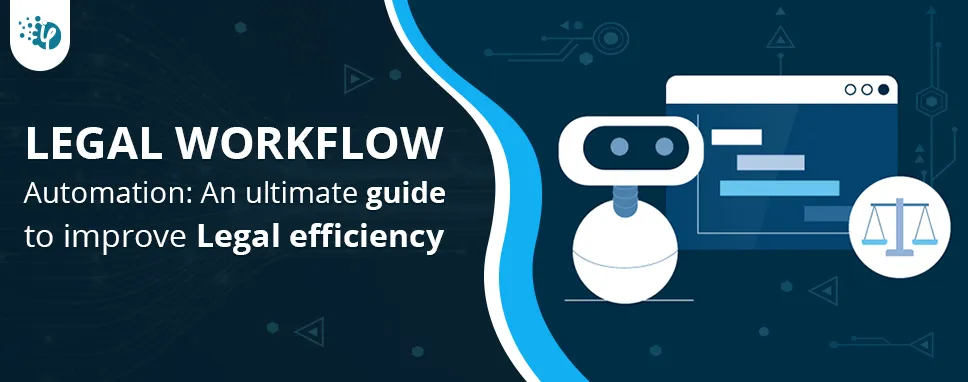Key Considerations while adopting Legal Workflow Automation
While many firms are already leveraging some of these emerging technologies, there is still plenty of room for improvement. In fact, according to a survey conducted by PwC, nearly half of the respondents believe that AI adoption within their organizations will increase in the next three years. This shift toward automation is expected to lead to increased efficiency, better client experiences, and improved productivity.
But while it is critical to keep up with the latest developments, it is equally important to recognize the long-term implications of adopting new technologies. Firms that fail to prepare now risk falling behind competitors that are embracing these innovations. For example, a lack of understanding of data privacy regulations could prevent a law firm from effectively utilizing AI tools. By taking steps today to understand key issues like data protection, security, and governance, law firms can ensure that their practices are prepared for the challenges ahead.
Legal workflow automation
The legal industry is increasingly moving towards workflow automation. This includes everything from document assembly, billing, case management,
discovery, e-discovery, and even litigation support. In fact, Singleton Law Firm, LLC predicts that the legal sector could save $2 trillion over the next decade by adopting workflow automation technologies.
Workflow automation allows lawyers to automate repetitive tasks and free up time for higher-value activities like client interaction and strategizing.
However, it isn't just about saving time; it's also about improving efficiency, and accuracy, and ultimately increasing revenue.
In addition, there are many legal practices where automation makes sense, such as law firms with large teams of paralegals, where automation helps reduce errors and increase productivity.
For example, a firm might use legal process automation software to automatically generate and send out invoices. Or, they could use a document
assembly solution to help lawyers assemble contracts and other documents faster.
There are several reasons why workflow automation is important for legal professionals, including:
- Improved customer experience
When you're able to provide better customer service, you'll attract more clients. And, when you attract more clients, you'll make more money.
- Increased revenues
Lawyers spend less time doing manual tasks and more time focusing on strategic planning, billable activities, and client interactions. As a result, lawyers can charge more for their services.
A greater level of collaboration within law firms
The pandemic has highlighted the important role that technology plays within legal practices. While many lawyers are working remotely, some still need access to information about clients, colleagues, competitors, and cases. As a result, it’s become increasingly important for lawyers to collaborate effectively.
According to a survey conducted by WestLaw, nearly three-quarters of respondents say that increased collaboration during the pandemic has improved productivity. However, while most lawyers agree that increased collaboration has been positive, almost half of those surveyed say that collaboration has actually decreased.
What’s causing this disconnect? Among respondents, there appears to be confusion over what constitutes collaboration. For example, one respondent
said that collaboration includes everything from sharing documents to discussing strategy. Another said that the best way to collaborate is by having conversations via video calls. A third said that it depends on the type of case.
While collaboration certainly requires face-to-face interactions, it doesn’t necessarily mean that lawyers must meet physically. In fact, according to another survey, nearly four out of five lawyers now use videoconferencing platforms like Zoom, Skype, WebEx, GoToMeeting, and Cisco Connect to conduct meetings. And while these platforms aren’t perfect, they do provide a number of benefits.
For instance, using a tool like Zoom allows you to see whether someone else is looking at the screen, and therefore potentially avoid eye contact. This can help prevent the spread of COVID-19. Additionally, since Zoom allows you to record videos, you don’t have to worry about losing or misplacing anything. You can also keep track of how long people talk, and even pause the recording to add comments.
Another benefit of using a collaborative platform like Zoom is that it enables you to quickly send files and presentations to multiple participants. This can be helpful if you want to distribute key materials to everyone involved in a particular project.
Finally, a tool like Zoom provides a secure environment where you can chat privately with colleagues without worrying about being overheard. This helps ensure that sensitive information isn’t accidentally shared with others.
Data security should be a priority
Law firms must take steps to protect client data now because the threat of cyberattacks is likely to increase over the next few years. As we approach 2022, the number of global cybersecurity incidents during the second half of 2021 surpassed those of the entire year of 2020.
The threat of ransomware attacks is growing, too. In July, the city of New York had its Law Department breached, exposing the personal information of thousands of employees and partners. The incident underscored how vulnerable law firms remain to cyber criminals.
Given that they hold sensitive data such as clients' PII or confidential details surrounding specific matters, law firms are particularly susceptible to ransomware attacks. These types of threats could put their ability to provide legal services at risk.
As a result, many firms are investing in technology solutions designed to help prevent these kinds of attacks. But even with robust defenses, there's
no guarantee that hackers won't succeed. And while the costs associated with losing access to critical data might seem high, they pale in comparison to the potential financial losses that could result from a breach.
For example, the cost of a major data breach can easily exceed $1 million per record, according to the Ponemon Institute, a research firm focused on
digital privacy and security issues. Even small hacks can cause significant damage. A recent survey conducted by the American Bar Association found
that lawyers experienced a median loss of $25,000 due to a data breach.
To mitigate the risks posed by ransomware attacks and other cyber threats, law firms must implement several key strategies. First, they must ensure that they're taking advantage of the latest technologies to keep their systems secure. They'll also want to make sure that they've implemented adequate policies and procedures to govern their use of cloud computing and other external resources. Finally, they'll need to train their staff about best practices for protecting data.
In addition to implementing these measures, law firms should consider hiring a dedicated IT team to monitor and manage cybersecurity across their organizations. This way, they can proactively identify vulnerabilities and address problems before they escalate into larger-scale attacks.
Communication options for clients
Communication is one of the key elements of good practice. Clients want to know what’s happening; they don’t necessarily care about how it happens.
But they do care about receiving clear information and being able to make decisions based on that information.
The best way to ensure you communicate effectively with clients is to plan ahead. This includes making sure you have a strategy in place, and that you
implement it consistently across every aspect of your practice.
There are four main ways to communicate with clients
- Regularly scheduled meetings
- Emails
- Phone calls
- Postings on social media.
Tactics for retaining new employees
According to employee retention specialists, A wider range in career paths, growth in alternative legal service providers (ALSPs), disruption due to artificial intelligence, and a lack of clarity around the future of law firms have all contributed to an uncertain career path for new lawyers.
Retensa, a global provider of employee retention solutions, found that 41 percent of respondents agree that there is too much uncertainty about what their career path will look like within their firm. Furthermore, 65 percent of respondents say that they feel overwhelmed by the number of choices
available to them in terms of job opportunities.
Innovating for the future The legal industry is transforming rapidly. Technology continues to change everything about the way we practice law, including how we interact with clients and colleagues. To thrive in the future, firms must embrace the changes taking place and start planning now to ensure they remain relevant and competitive. This guide outlines the five key legal industry trends impacting the profession, explains why they matter, and provides practical advice on how to prepare for them.























